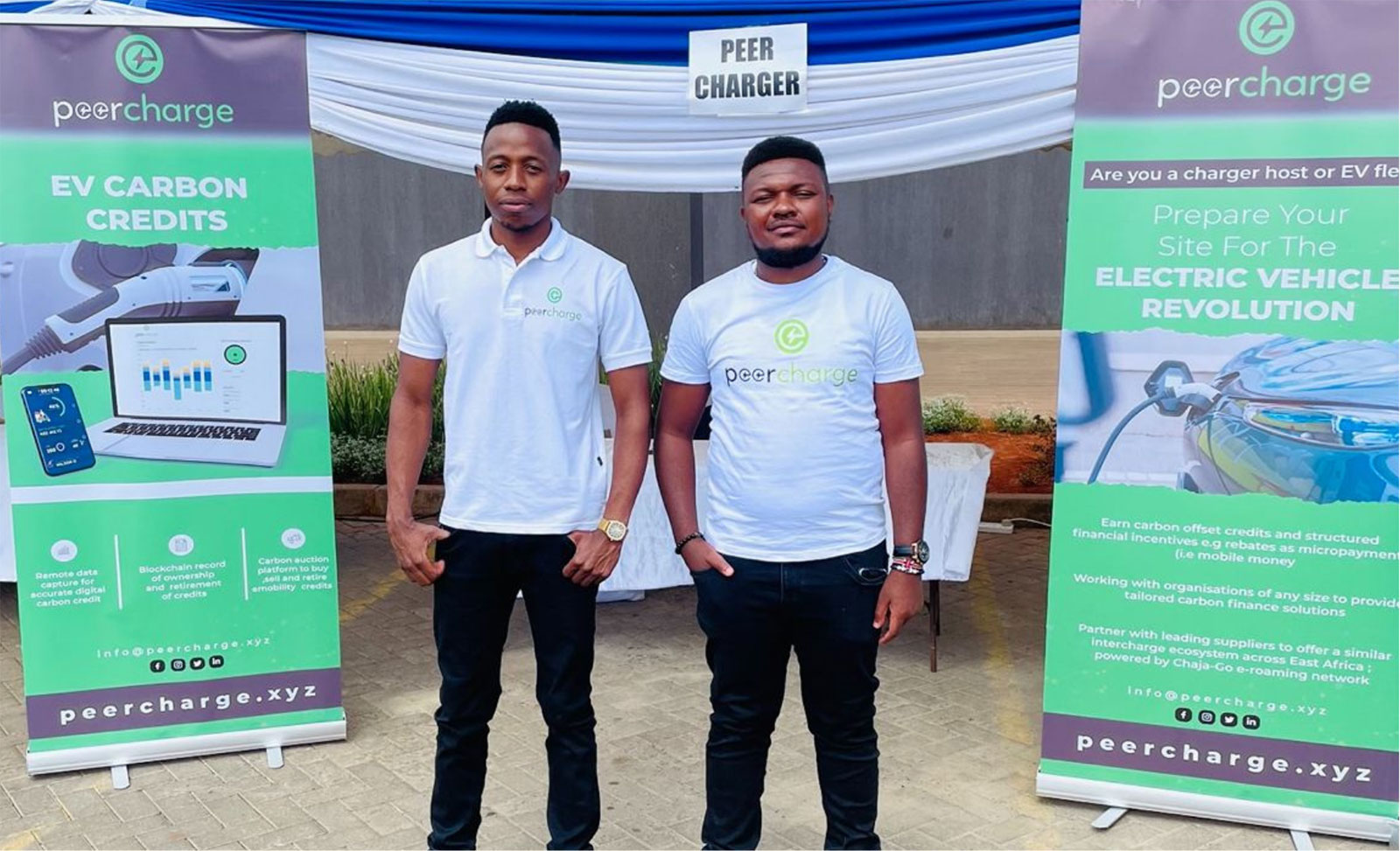
Q&A with Peercharge, an African E-mobility Provider (EMP) System
According to the International Trade Administration, Kenya’s transport sector is one of the main contributors of greenhouse gas emissions due to the sector’s predominant use of fossil fuel.
To achieve the government’s commitment to climate change mitigation efforts, the country has set a goal of reducing emissions in the transport sector by 3.46 metric tons of CO2 by 2030. The government has embarked on various initiatives to drive the adoption of e-mobility.
An up-and-coming startup saw this as an opportunity. Co-founded by Raymond Maiyo and Glenn Digollo, Peercharge is an e-mobility services provider (EMP) that aggregates e-mobility projects for verified carbon credits generation from charging activities at a low cost.
This week’s deep dive is a Q&A highlighting how the company uses blockchain technology to enable their solutions.
What inspired you to start Peercharge?
We previously co-founded Tetch Systems, a startup that developed a fuel management and analytics software aimed at helping fuel retail chains and fleet managers get efficiency, transparency and savings in their operations. Post Covid, the global narrative shift towards greener energy and we saw this as an opportunity to streamline the downstream e-mobility industry in Africa. Hence, we decided to pivot our solution to an all-in-one charging station management hub for EV fleet and Charging Point Operators to get oversight on their operations and get verified to earn carbon credits for their role in eliminating CO2 emissions.
What sets you apart from other e-mobility providers?
We are developing a hub to connect directly with all charge point operators via a peer-to-peer connection, enabling interoperability between the different charger operators. By doing so, Peercharge carves its niche in the industry to offer ancillary services like rebates and tariffs to e-mobility projects. Through Peercharge, Electric Vehicle (EV) drivers in Africa can connect to chargers all around the continent. This solution is half of the customer-facing section of the charging system. Charge point operators make up the rest. These two work together to create a flexible and comprehensive charging system for the EV industry.
We also aim to become the ‘first stop solution’ proponent for carbon emissions verification for e-mobility projects. This positions Peercharge as an enabler for the expansion of the industry and a player with a sole purpose of strengthening the business case of e-mobility industry investors by accelerating the delivery of financing to high-impact carbon projects.
What blockchain protocol do you use and why?
The Peercharge system is built on Polygon. Polygon is a Layer 2 blockchain that aims to help Ethereum with its scalability. By acting as a Layer 2 protocol, Polygon improves transaction speeds and has lower development costs. Within the blockchain climate-tech space, Polygon is the best fit protocol for the team to build on. Polygon recently became carbon-neutral, and has committed to going ‘carbon negative’, which aligns strongly with Peercharge’s values.
Polygon is also creating a climate offset vertical within its ecosystem and has pledged US$ 20 million to a series of community initiatives, including funding projects that utilise technology to combat climate change.
Peercharge seeks to be part of this ecosystem and expects to benefit from Polygon’s technical and business support for our entire platform. We also plan to collaborate with similar projects to bring transparency and accessibility to the otherwise opaque voluntary credit markets in Africa.
How do you intend to grow your business on blockchain while minimising integration costs?
By building on Polygon, Peercharge has a scalability advantage. The first phase of the company will focus on establishing a digital Monitoring, Reporting and Verification format for carbon credits issuance based on EV charging activity. Blockchain will be incorporated to ensure transparency from origination of the credits to retirement.
The later phase will see Peercharge set up a blockchain based carbon credits listing and offsetting platform with APIs for companies from large enterprises to SMEs to decarbonise their operations without sacrificing their business, allowing them to have smart carbon accounting at their fingertips. This growth will be done on Polygon and the team will leverage existing open source solutions.
What is your primary objective for the next stage of the company’s development?
The company is currently focused on piloting the Charging Point Operator Hub and integration protocol with EV charging stations around Nairobi and Kampala. As the pilots are ongoing, the team will be working on onboarding EV fleets, Charger Hosts and EV leasing companies to join the Peercharge network. Letters of interest for business have been tabled and signed by industry players in our target market.
The core value proposition by Peercharge is carbon credits verification for projects. For this, the company is undergoing its registration to become a verified carbon credit proponent under the Verra standards.
|
Explore more Carbon Footprint Reducing Startups on The FutureList |
Categories
Recent Posts
- How AI Surveillance is Shaping Public Safety in Smart Cities
- Innovation Memo with Zencey: Bringing Equitable Healthcare to Africa
- Inside the Software Model Running Modern Harbours
- The Formula for Future Speed: Data-Driven Performance in Racing
- Leveraging Next-Gen Endoscopic Interventions and Innovations for Healthcare